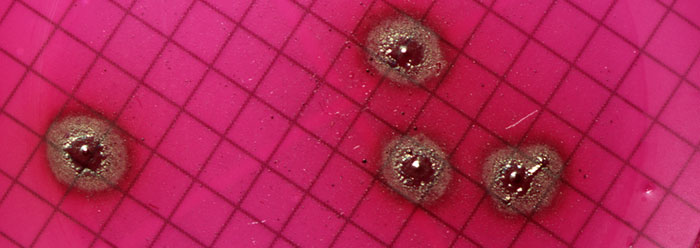Scientists recently ran experiments to determine what happens when excess nucleotides are present during DNA replication.1 In normally functioning living things, each newly formed cell receives all the freshly minted DNA it needs. But DNA copying (replication) requires manufacturing a new chromosome based on the template of an existing one—a complicated task.
Enzymes assemble tiny chemical building blocks called nucleotides into long chains millions of bases in length. What would happen if an overabundance of nucleotides overwhelmed the DNA replication site?
Using bacteria as their subject, researchers ran tests to find out how this process is regulated. Reporting in the journal Proceedings of the National Academy of Sciences, they were surprised to discover that only a slight uptick from normal nucleotide production will hinder the error-checking process and cause an increase of harmful mutations to occur during DNA replication.1
DNA assembly requires nucleotides in the form of deoxynucleoside 5'-triphosphates (dNTPs) and apparently requires them in a very precise concentration. The study authors wrote, "The results of this work reveal that seemingly modest changes in the cellular dNTP concentrations can have dramatic consequences for the mutation rate."1 Eventually, "error catastrophe," a kind of mutational meltdown, rendered the bacterial genomes useless, like an encyclopedia packed with gibberish.
This research clearly implies that cells not only need DNA copying, error-checking, and repair enzymes but also require molecular detectors that monitor nucleotide levels, mechanisms that communicate those levels to the dNTP manufacturers, and a process to govern production rates accordingly. In other words, this discovery adds one more critical component to the already long list of parts that must all simultaneously be in place for any cell to function.
So many precisely interacting parts do not just come together by chance. No wonder Job wrote, "Who among all these does not know that the hand of the LORD has done this?"2 As in other cases where a precise balance of supplied materials is required, DNA replication reflects purposeful creation through a wise Designer.
References
- Ahluwalia, D. and R. M. Shaaper. 2013. Hypermutability and error catastrophe due to defects in ribonucleotide reductase. Proceedings of the National Academy of Sciences. 110 (46): 18596-18601.
- Job 12:9.
* Mr. Thomas is Science Writer at the Institute for Creation Research.
Article posted on November 22, 2013.




